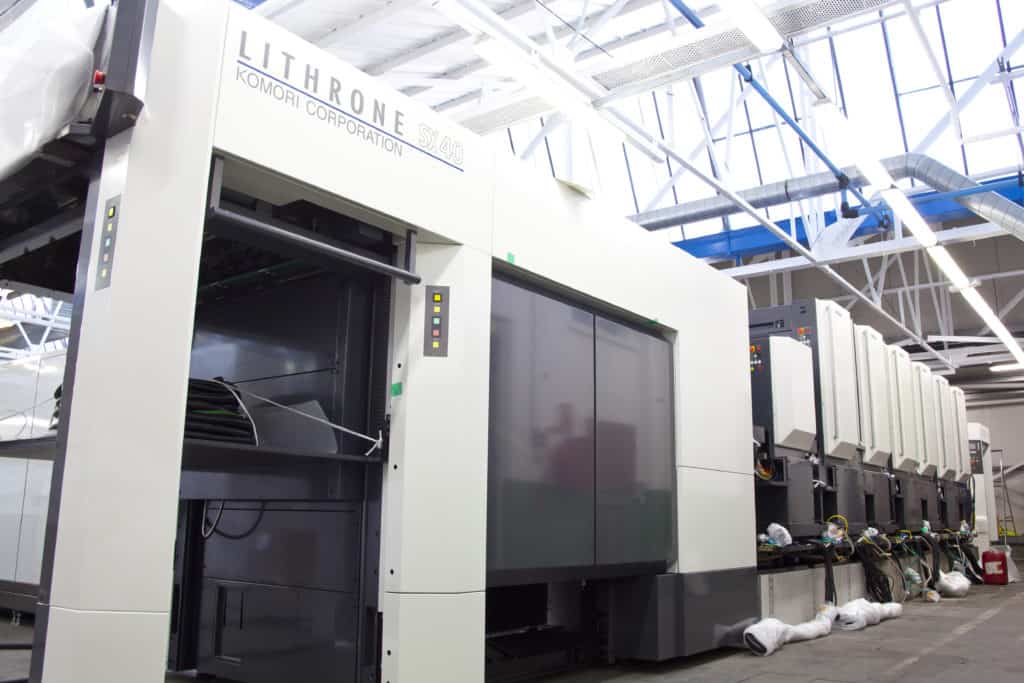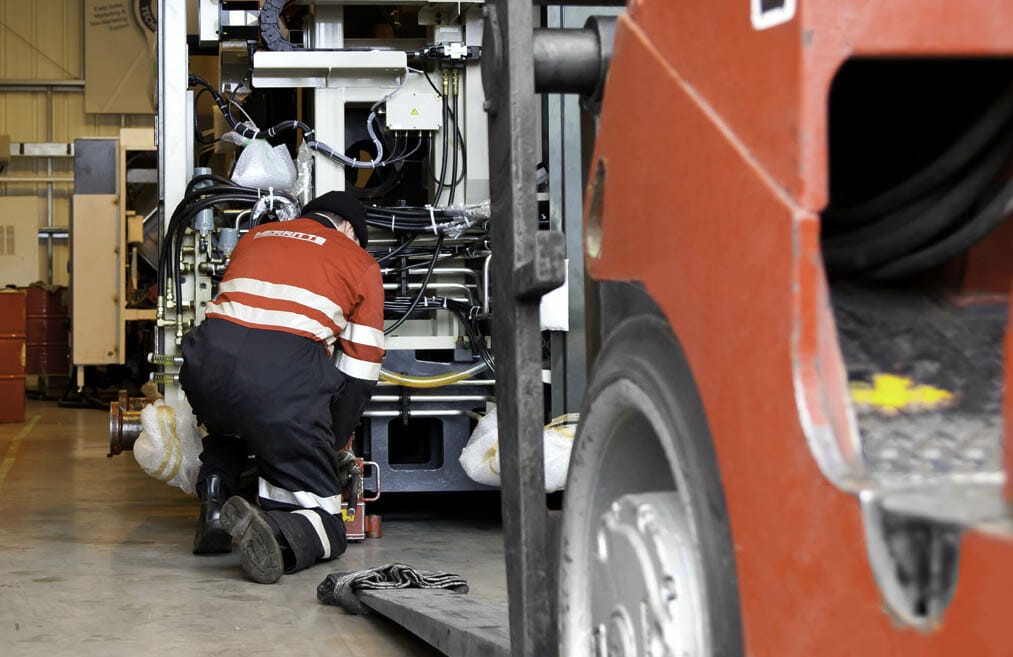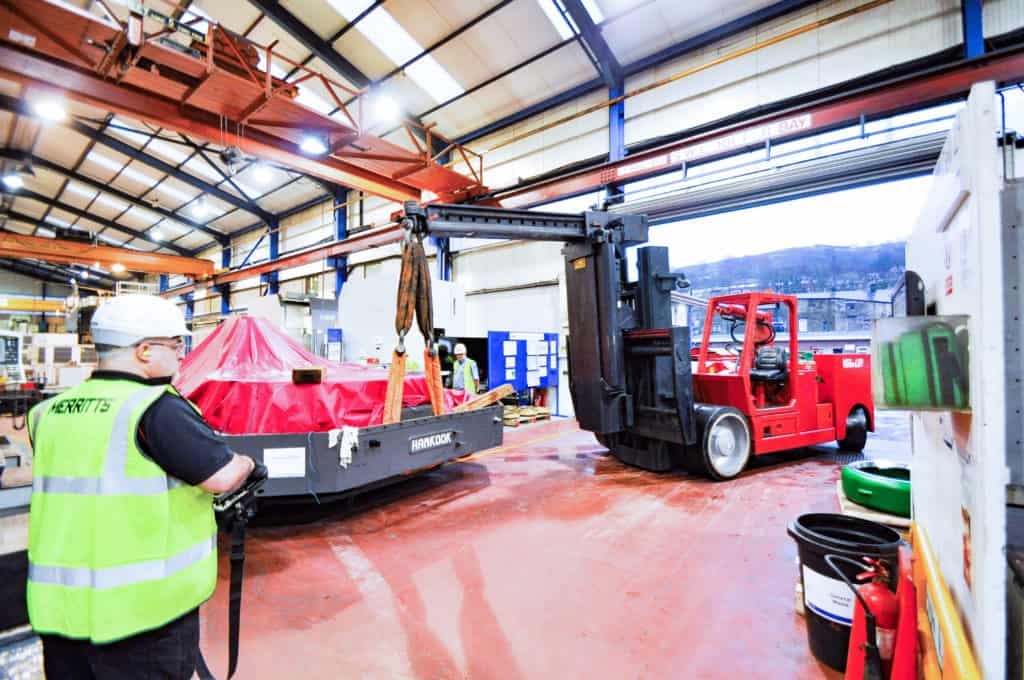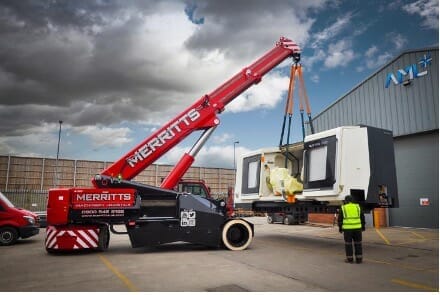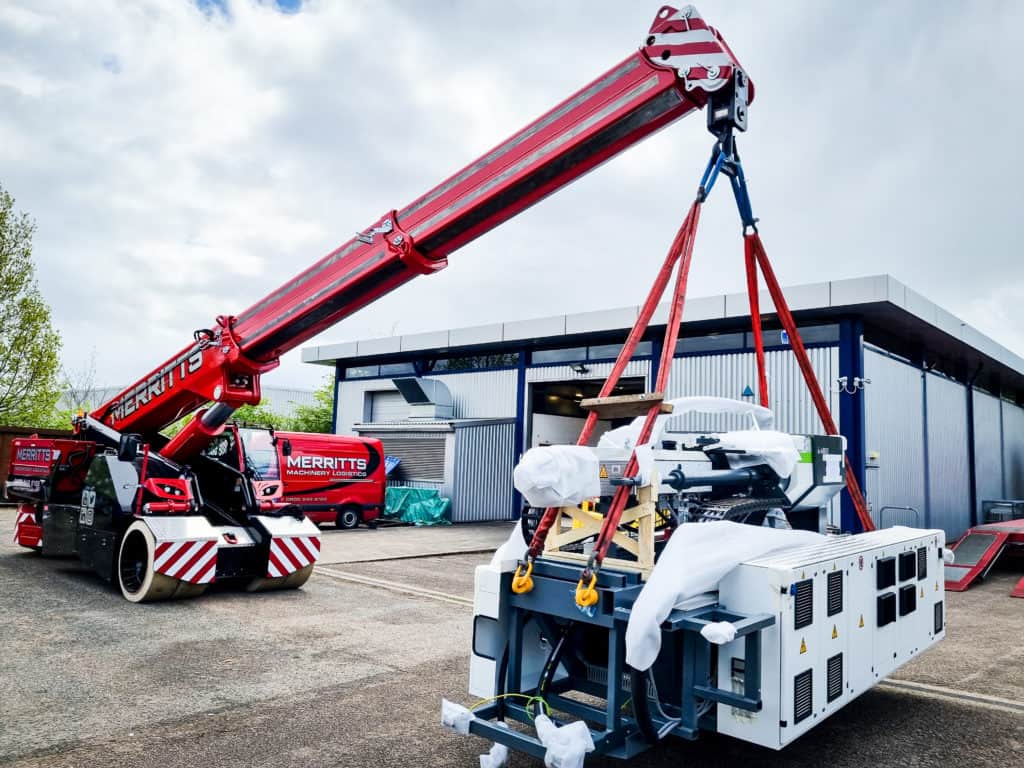Call FREE: 0800 046 9840
Email us: enquiries@merritts.uk.com


Traffic movements in Beeston were halted recently whilst heavy machinery moving & storage specialists Joseph Merritt Group Plc dismantled and relocated four modular homes to their storage facility in Kirkby-in-Ashfield.
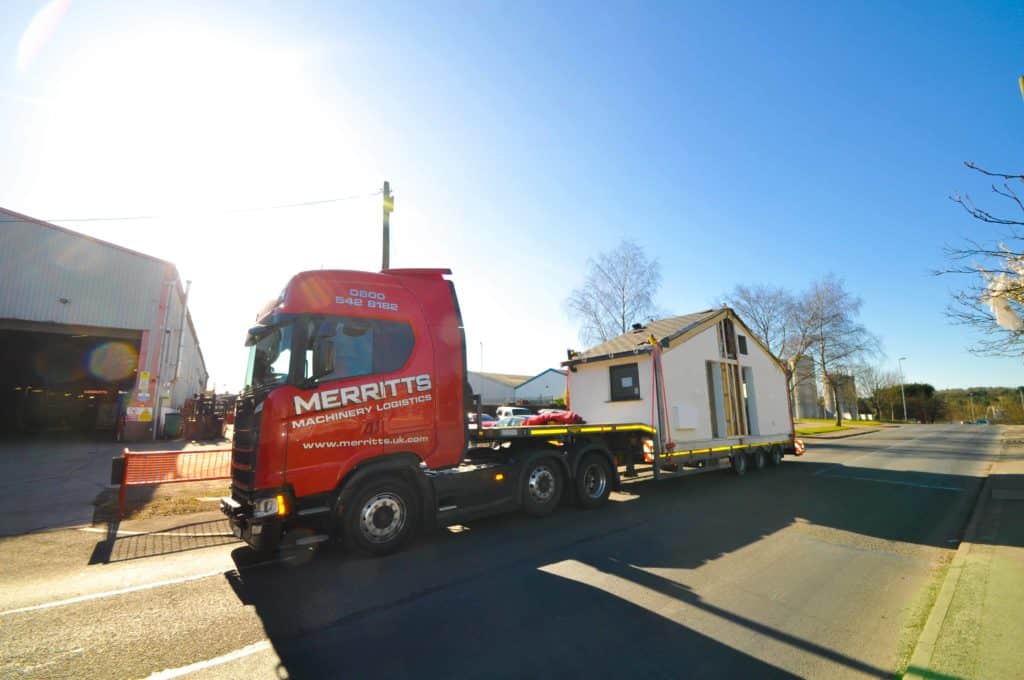
The four homes comprised of sixteen individual units which had been acquired by Futures Housing, a housing association based in Ripley. Futures Housing worked together with KLEG Offsite Build, designers of the modular homes, to arrange their removal and temporary storage.
Merritts safely carried out the project using a mobile crane, a Versa-Lift 25/35 fork lift and specialist low loader trailers. A traffic regulation order (TRO) was arranged by the project team to ensure parking restrictions were in place in the vicinity of the works. This allowed suitable access for both the mobile crane and Merritts HGV’s.
Due to the width and height of the modules the transport element was a notifiable load movement. Merritts arranged this with the relevant authorities three weeks in advance of the works. A nominated route had to be followed and the drivers had an allocated two hour window in which they could operate. Multiple trailers were used to increase efficiency and ensure minimal disruption to both local road users and residents.
Commenting on behalf of KLEG Offsite Build, Derrick Wilson, CEO, said “Having worked with Merritts on a previous project they were an obvious choice to carry out this work. I was impressed with their professionalism from start to finish. Their health and safety team’s preliminary site visit ensured all hazards were identified and the necessary safety documents were produced. This gave peace of mind, especially as we were operating in a residential area. The storage service they provided was of an added benefit as we were allocated a dedicated area which we could have access to as and when required.”
The modular housing units are manufactured and pre-fabricated in a production facility. The units are then transported to site and bolted together for final assembly. The finished product can look very similar to existing buildings, yet 80 per cent of the work is done off-site. This offers a faster solution to deliver a multitude of buildings including homes, schools, hospitals or prisons. Due to the insulation quality of the modular homes, they have an extremely low U-value. This can help to reduce energy cost by up to 80% compared to traditionally built houses.
The government wants 300,000 homes a year built by 2025, yet at the moment the sector can only deliver 190,000 due to skill shortages and timescales to build.
